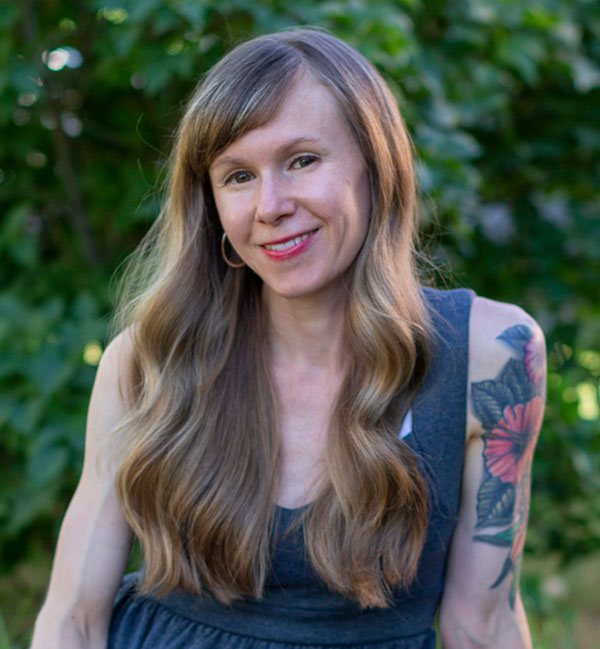 As an Ayurvedic practitioner, one of the most prevalent emotional disorders I deal with on a regular basis is anxiety. With our current society of go-go-go, non-stop electronics, and constant stimulation, it is truly not surprising. In fact, I even have had my own recurring battles with anxiety in the past. Thankfully through the wisdom of Ayurveda, I have come to find emotional balance in my life, and now have helped many others reduce their anxiety, allowing them to find a place of stability in their body and mind.
As an Ayurvedic practitioner, one of the most prevalent emotional disorders I deal with on a regular basis is anxiety. With our current society of go-go-go, non-stop electronics, and constant stimulation, it is truly not surprising. In fact, I even have had my own recurring battles with anxiety in the past. Thankfully through the wisdom of Ayurveda, I have come to find emotional balance in my life, and now have helped many others reduce their anxiety, allowing them to find a place of stability in their body and mind.
According to Ayurveda, anxiety is a disorder of the nervous system and of Vata dosha. Therefore when thinking of a treatment plan, we must look at how to nourish and strengthen the nervous system while pacifying Vata. Before any treatment can really begin however, it is most important for you to look at the specific cause(s) of your anxiety. Once this is revealed, you can begin to make a plan to remove the cause, as treatment will only work if the cause is in the process of being removed. This is true with ANY disorder, mental or physical. If the cause is not removed, then herbs, diet, and other changes will only temporarily pacify the anxiety, but the benefits will not be permanent or long-lasting.
Common Causes of Anxiety
- Stress; this includes ALL stress such as work, school, relationships, and financial
- Increased Vata in the system
- Fall and winter season
- Dry and/or windy climate
- Lack of sleep
- Staying up too late
- Lack of routine
- Skipping meals
- Poor diet choices
- Raw, cold food and beverages
- Caffeine and other stimulants
- Overworking, overexertion
- Excessive aerobic activity such as jumping, jogging, and extreme cardio
- Excessive use of electronics such as computer, cell phones, etc
- Excessive talking and social activity
- Past trauma (PTSD)
- Major life changes such as marriage, divorce, moving, and job changes
- Loss of a loved one
- Side-effects of prescription medication
- Genetics (this will only make you more susceptible to anxiety, this will not actually be the cause however)
14 Ways to Reduce Anxiety
1. Discover where the anxiety is coming from.
This may be a hard one, but at some point it will be necessary. If you are struggling with long-term anxiety, you must take some time to detach yourself from this emotion (remember you are not the anxiety!), look at it dead on, and ask it “where are you coming from?” Everyone will have a different answer, as we are all unique beings with unique stories. It may be an obvious answer or it may take some journaling, therapy, meditation, or self-study to discover the origin of it. Once you can realize and understand where the anxiety is coming from, you can then begin to remove the cause and truly heal from it.
NOTE: If this step is too much to begin with, start by following some of the other recommendations and coming back to this process once you are ready. It may be most helpful to seek a therapist to help you discover the answer.
2. Create a balanced, consistent daily routine.
This is HUGE! In order to obtain emotional balance inwardly, it is extremely helpful to begin by establishing balance externally. This includes sleeping at consistent and healthy times, waking up early, eating three meals daily at proper times, working at routine times, and even integrating some routine self-care practices each day (keep reading for a couple great examples).
Click here for a full chart of a healthy daily routine (aka Dinacharya).
3. De-clutter your environment.
To keep this idea of “external changes for internal healing” going, another great step is to remove the clutter and chaos from your home and work environment. Whether it is a deep cleaning, major organizing or both that is needed; make some space and time to make this happen. I truly believe that in order to establish a balanced mind, we must have a clean, organized environment. In fact, our environment is a reflection of our mind and vice versa. Since it is easier to de-clutter our surroundings than to de-clutter our mind, this is a great place to start. Whether at work or home, turn the places that surround you day after day into a beautiful, pleasant, peaceful space that you can call your sanctuary.
4. Take a walk everyday.
Walking is the most preferred exercise in Ayurveda, as it works to heal the body and mind in a gentle, yet powerful manner. Of course there is the physical movement that is beneficial to the body, but there are other aspects that often get overlooked. Taking a walk allows you to take a break from whatever it is that you are doing. It allows you some space to collect and process your thoughts, while getting fresh air and taking in your environment. This doesn’t have to be a long, strenuous walk; rather a peaceful, gentle walk ranging from 10 to 30 minutes. Even a quick walk around the block is better than nothing! No matter how busy your days get, find an ideal time to take a walk and make it an essential part of your daily routine!
5. Eat warm, well-cooked meals with lots of healthy oils and spices.
As mentioned above, anxiety is considered a Vata disorder and therefore one should follow a healthy Vata pacifying diet routine. This includes eating mainly warm, well-cooked meals and using lots of healthy oils and spices. Some great options are oatmeal, buckwheat groats, quinoa porridge, kitchari, soups, stews, sautés and stir-fries. In addition, one should avoid all raw foods, cold meals, and cold beverages.
6. Make the self-oil massage a part of your routine.
The skin is said to be the gateway to the nervous system. To apply oil (preferably medicated oil) to the skin is not only extremely calming and balancing to the body, but even more so to the mind. Begin by massaging the scalp, forehead, and face and slowly work your way down to the feet. Leave the oil on for at least 30 minutes, or apply it before bed and keep on overnight. If you are pressed for time, simply take several minutes to massage the feet each night before bed to ground the energy and the emotions. The best oil for anxiety is by far warm Vata oil, but warm refined sesame oil can be used if this is not available.
Click here for full instructions on the self-oil massage.
7. Take a warm ginger-baking soda bath before bed.
When anxiety and stress get high, this is a surefire way to bring the energy down. Taking a warm bath is a great method for working on the para-sympathetic nervous system, reducing stress, calming the energy, and balancing the emotions. Simply add 1/3 cup of dry ginger and 1/3 cup of baking soda and dissolve in warm-hot bath water. Add several drops of a calming essential oil such as lavender, rose, rosemary, or tulsi. Turn the lights low and let yourself relax and unwind. During times of extremely high anxiety, finish with the self-oil massage after the bath to complete the evening.
8. Spend some time in nature.
It is no secret that being in nature is often one of the best medicines for creating emotional balance. For anxiety specifically, I would suggest going on a gentle hike in the woods or a peaceful walk on the beach rather than a strenuous hike up the mountains. If fact, sometimes all I need is to simply sit and BE in nature, inhale the fresh air, and absorb my surroundings. Part of it is just getting away from people, part of it is the peacefulness that allows me to collect and process through my thoughts, and another part is the power of the negative ions that are so widely prevalent in nature. If you are suffering from anxiety, make time to be in nature at least one time each week (every week) and watch the powerful effects unfold!
9. Listen to healing, peaceful music.
To create peace and balance in your mind, it can be very beneficial to listen to beautiful, peaceful music during times of high anxiety. Anxiety is a stimulating emotion and needs to be grounded and calmed when it arises. Peaceful music is a simple addition you can utilize either routinely throughout your day or during acute anxiety flare-ups. If you do not have “peaceful” music available in your collection, simply put in “Healing Sounds” radio on Pandora or Spotify and they will provide a lovely selection.
10. Take a restorative Yoga class each week.
A lot of Yoga can be very stimulating and uplifting, but during times of anxiety you will need to bring the energy down. A powerful way to do this is to take a restorative Yoga class each week (or more). Restorative Yoga classes are slow paced and hold gentle postures for several minutes at a time, allowing one to release through the body and through the mind. Once you learn some of these restorative postures, you can even begin to practice them at home any time you need a little calming and restoration.
11. Perform 10 deep breaths – morning, mid-day, and night.
There are many great breathing techniques to reduce anxiety, but the simple “deep belly breathing” technique is a great one to start with. During times of high stress and anxiety our breath becomes quick and shallow, and sometime gets held in unconsciously altogether. This shallow breathing further stresses out the body and in turn increases the anxiety. In order to avoid this negative habit, take a few minutes each morning, mid-day, and evening to take 10 breathes deep down in the belly. The more you condition your body to breath deeply, the more it will become a habit through your entire day.
12. Meditate daily.
There is not much more powerful of a method of healing the mind and nervous system than through daily meditation. No matter the method you prefer, taking 10 minutes in the morning to “sit” is a great way to begin to create emotional balance and reduce anxiety. There are countless methods you can try out, but some that have worked well for me is “watching the breath”, “So Hum meditation”, or simply sitting with my thoughts- allowing them to arise and sending them on there way. In fact if you have not practiced meditation, simply sit in a comfortable position, in a quiet place and take the time to just BE. Sit with your thoughts without holding on to any one of them. If this is too hard, keep your focus on your inhale (long and steady) and exhale (long and steady). Keep to a routine 10 minute morning practice, making sure to do it daily for the full anxiety-reducing benefits.
Click here for more details on three powerful (and simple!) meditation techniques.
13. Take Majja Ghrita (nervous system ghee), two times daily.
Majja Ghrita is the medicated ghee that has been created specifically to treat anxiety and other emotional/nervous system disorders. The herbs chosen are the most powerful herbs in Ayurveda to reduce anxiety, and the ghee acts as a “vehicle” to absorb the herbs beyond the blood-brain barrier, acting directly on the mind and nervous system. Take 1 teaspoon of Majja Ghrita, 2 to 3 times daily after meals. Be consistent for noticeable results.
14. Perform Dashamul Basti one time each week.
Although it may seem bizarre, but one of the most powerful ways to treat Vata and anxiety is through the colon. Basti is the Ayurvedic term for the “herbal enema”. The best choice of herbs to treat anxiety is the traditional blend known as Dashamul. Make a strong tea out of the dashamul herbal blend and insert into the colon using an enema bag. Perform this one time a week for 1 to 3 months depending on the severity of the anxiety. If you are not familiar with this process, it is best to work directly under the care of an Ayurvedic practitioner.
Anxiety can leave you feeling overwhelmed naturally and therefore the treatment process can exacerbate this feeling even further. To avoid this from occurring it may be best to work under a practitioner or a therapist, especially if the anxiety is severe. If this is not an option, simply take it slow and incorporate small changes into your routine one step at a time.


